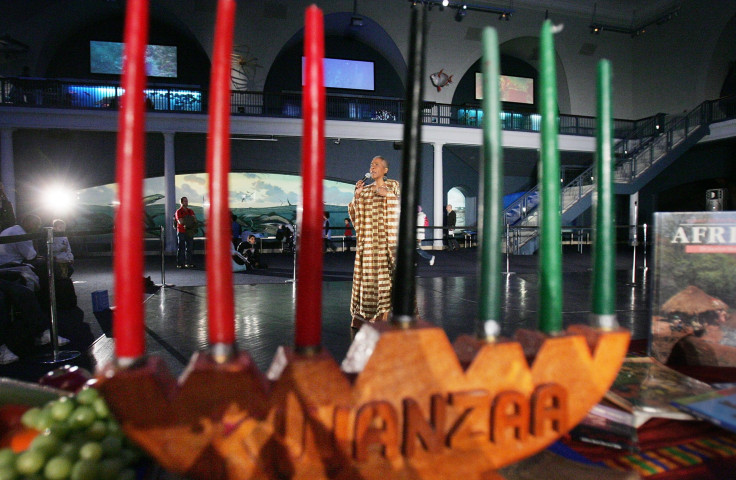Kwanzaa 2016: When Does The African-American Holiday Start And 5 Facts To Know

While much of the country readies for Christmas and Hanukkah, a less heralded winter holiday tradition is also approaching: Kwanzaa. The week-long African-American celebration that was created 50 years ago is set to begin this year on Dec. 26.
The holiday is based on seven principles as a way to "reaffirm the communitarian vision and values of African culture and to contribute to its restoration among African peoples in the Diaspora, beginning with Africans in America and expanding to include the world African community," the official Kwanzaa website explained in part.
Below are five facts to know about the annual African-American holiday tradition:
Lighting the Kinara
Those celebrating Kwanzaa participate in a similar ritual to Hanukkah by lighting seven candles -- one for each day of the week-long celebration -- on a candle holder, called a Kinara. The seven candles are also symbolic and go hand-in-hand with Kwanzaa's seven principles.
The Seven Principles of Kwanzaa
The seven principles on which Kwanzaa is based are as follows: For day 1, Umoja, which means unity; on day 2, Kujichagulia, which means self-determination; on day 3, Ujima, which means working together; on day 4, Ujamaa, which means supporting each other; on day 5, Nia, which means purpose; on day 6, Kuumba, which means creativity; and on day 7, Imani, which means faith, especially faith in ourselves.
The Colors of Kwanzaa
The colors associated with Kwanzaa are red, black and green, the universal hues for African-inspired culture. The red stands for the blood that people of African heritage have in common. The black symbolizes the black people for whom Kwanzaa was created. The green stands for the African land.
Tens of Millions of People Celebrate Kwanzaa
While there is no precise way to measure how many people celebrate Kwanzaa, previous estimates have put the number of participants at up to 28 million worldwide.
Kwanzaa is Not Only for Black People
While Kwanzaa was created as another way to celebrate black and African heritage and culture, people of all races and creeds are invited to participate in the tradition.
Click here to find out more about the annual Kwanzaa holiday tradition.
© Copyright IBTimes 2025. All rights reserved.






















